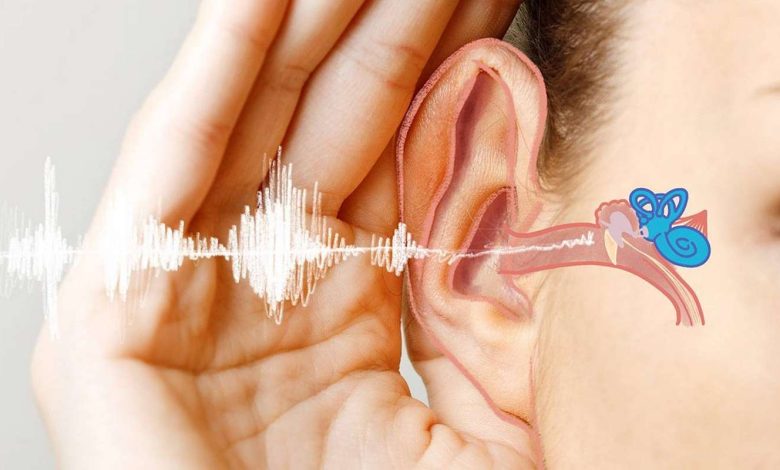Tinnitus, noise in ears: what is this, causes, symptoms, diagnostics, treatment, prevention

Ringing; Ringing in the ears; Noises or buzzing in the ears; Ear buzzing; Otitis media – tinnitus; Aneurysm – tinnitus; Ear infection – tinnitus; Meniere disease – tinnitus
Noise in ears, also known as tinnitus, tinnitus, represents a state, at which a person perceives a ringing, buzzing or other noise in the absence of an external sound source. Noise can be heard in one ear or both ears, and it can range from a low constant hum to a high-pitched intermittent sound. Ringing in the ears may be a symptom of an underlying disease or a separate condition..
Causes of tinnitus
The exact cause of tinnitus is not fully understood., but considered, that it is associated with changes in the auditory system. Some of the more common causes of tinnitus include:
- exposure to loud noise: prolonged exposure to loud noise can damage the hair cells of the inner ear, which will lead to tinnitus.
- Age-related loss of hearing: hair cells in the inner ear can become damaged with age, leading to hearing loss and tinnitus.
- Ear infections or blockage: an infection or blockage in the ear can cause inflammation, leading to tinnitus.
- Some medications: some medicines, such as aspirin and some antibiotics, may cause tinnitus as a side effect.
- Head or neck injury: trauma to the head or neck can damage the auditory nerve, which will lead to tinnitus.
- Meniere's Disease: this inner ear disorder can cause tinnitus, as well as dizziness and hearing loss.
- High blood pressure: High blood pressure can cause blood flow changes, what causes tinnitus.
Symptoms of tinnitus
The most common symptom of tinnitus is a ringing sensation, buzzing or other noises in the ears. Noise may vary in intensity and frequency and may be heard in one ear or both ears. Other symptoms of tinnitus may include:
- Difficulty concentrating
- Difficulty sleeping
- Headache
- Dizziness
- Fatigue
Diagnosis of tinnitus
Diagnosis of tinnitus usually begins with a thorough history and physical examination.. Your doctor will ask about any symptoms, which you are experiencing, and any underlying diseases, which you have. He can also do a hearing test., to determine, do you have hearing loss. Additional tests, such as MRI or CT, may be prescribed to rule out any underlying disease.
Treatment for tinnitus
Treatment for tinnitus depends on the underlying cause. If an underlying disease is found, treating this condition can relieve tinnitus. If the underlying disease is not found, treatment options may include:
- sound therapy: listening to background noise, such as white noise or nature sounds, can help mask tinnitus and make it less noticeable.
- Cognitive therapy povedencheskaya: this type of therapy can help reduce emotional stress, caused by tinnitus, and improve survival strategies.
- Medicines: some medicines, such as antidepressants and anti-anxiety drugs, may help reduce symptoms of tinnitus.
- Tinnitus retraining therapy: this type of therapy can help teach the brain to ignore tinnitus.
Prevention of tinnitus
Preventing tinnitus can be difficult, since the exact cause is not always known. Nonetheless, there are several steps, you can take, to reduce the risk of developing tinnitus:
- Protect your ears from loud noise: wear earplugs or noise-canceling headphones when exposed to loud noise.
- Avoid drugs, which can cause tinnitus: if you are taking medicines, which can cause tinnitus, talk to your doctor about alternative options.
- Maintain a healthy lifestyle: eat a healthy diet, exercise regularly, avoid smoking.
Used literature and sources
Sadovsky R, Shulman A. Ringing. In: Kellerman RD, Rakel DP, eds. Conn’s Current Therapy 2020. Philadelphia, PA: Elsevier; 2020:65-68.
Tunkel DE, Farmer CA, Sun GH, et al. Clinical practice guideline: tinnitus. Otolaryngol Head Neck Surg. 2014;151(2 Suppl):S1-S40. PMID: 25273878 pubmed.ncbi.nlm.nih.gov/25273878/.
Worral DM, Cosetti MK. Tinnitus and hyperacusis. In: Flint PW, Francis HW, Haughey BH, et al, eds. Cummings Otolaryngology: Head and Neck Surgery. 7th ed. Philadelphia, PA: Elsevier; 2021:chap 153.
